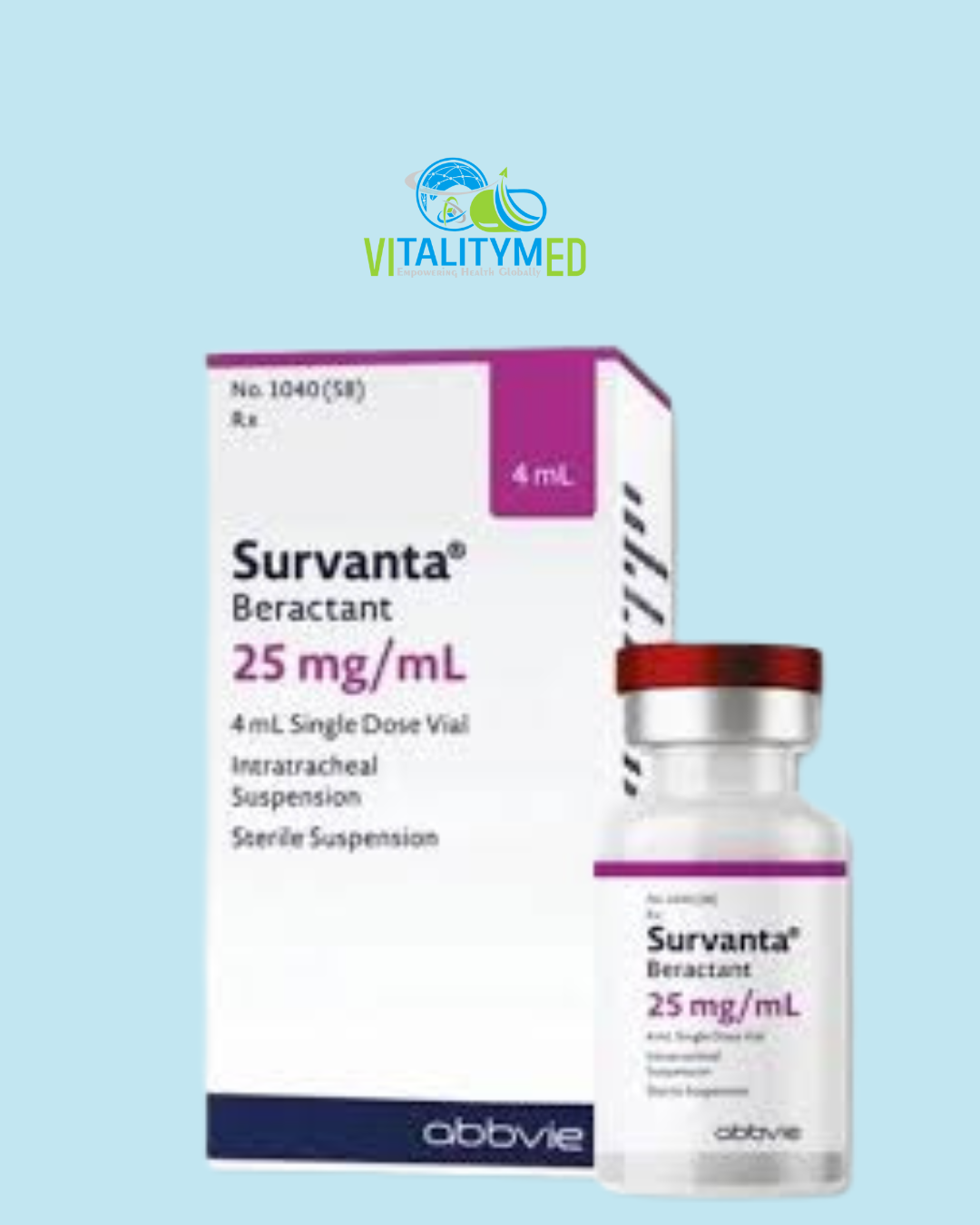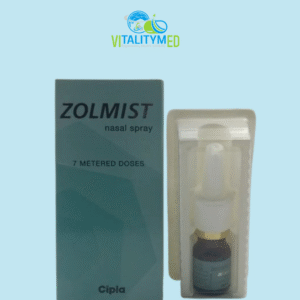Survanta is a lung surfactant used in premature infants to treat or prevent respiratory distress syndrome, a serious condition caused by underdeveloped lungs. It contains beractant, which is a natural surfactant prepared from bovine (cow) lung extract. Survanta is administered directly into the infant’s lungs soon after birth or at the onset of breathing difficulties, and it plays a vital role in helping the baby breathe more easily.
Mechanism of Action:
In the lungs, surfactant is a substance that reduces surface tension within the air sacs, known as alveoli. In premature babies, their lungs often lack enough natural surfactant, leading to alveolar collapse and difficulty breathing.
-
Survanta works by replacing or supplementing the missing surfactant.
-
Beractant spreads across the alveoli and reduces surface tension, keeping the air sacs open during breathing.
-
This helps improve gas exchange, oxygen delivery, and overall lung function.
Uses:
Survanta is used in neonatology for:-
Treatment of respiratory distress syndrome (RDS) in premature infants
-
Prevention of RDS in high-risk preterm infants, ideally given within 15 minutes of birth
-
It may be repeated up to three more times within the first 48 hours of life if required
Adverse Effects:
Although Survanta is life-saving, some side effects may occur, usually related to the administration procedure or the infant’s critical condition:-
Bradycardia or a slow heart rate during or after dosing
-
Oxygen desaturation or a temporary drop in oxygen levels
-
Airway obstruction due to the thickness of the solution
-
Pulmonary hemorrhage, though rare, is a serious side effect
-
Other risks include infection, apnea, or intracranial bleeding, which may also relate to prematurity rather than the medication itself
-
-






